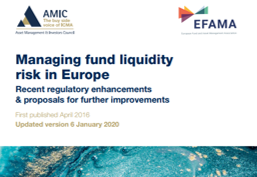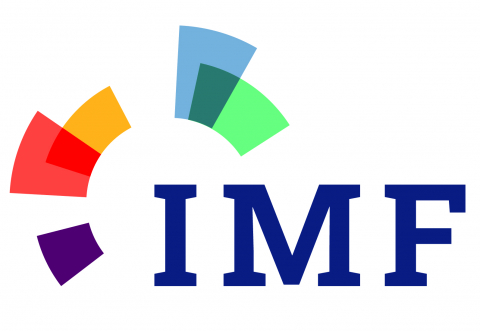EFAMA welcomes the consultation that the European Commission launched on the cross-border distribution of different types of investment funds (AIFs, UCITS, EuVECA/EuSEF, and ELTIF) and the opportunity to respond as to the remaining barriers to marketing funds across the EU single market, as well as the ways to eliminate them. We, also, fully share the goal of the European Commission in seeking further ways to deepen the Single Market for investment funds.
Management Companies
EFAMA has been looking at legislative proposals with a direct impact on asset management companies and services, and closely follows any regulatory developments of critical importance to the sector. In addition to issues related to risk management and financial stability, high up on the agenda of EFAMA members is the framework for a prudential regime for Investment Firms (IFD/R), and related implementing measures directly descending from such framework.
EFAMA is focused on minimising the impact of the rules on asset management companies, in particular those holding a limited MiFID license. Key to the sector is the need for proportionality, especially firms that are not authorised to hold client money/securities, or to deal on their own account.
EFAMA response to the European Commission’s consultation on the barriers to cross-border distribution of funds
EFAMA response to ESMA Call for Evidence on asset segregation
EFAMA welcomes ESMA’s Call for Evidence on asset segregation and custody services as a precious occasion to confirm our previous key messages - as per our response to the previous consultation around Guidelines on asset segregation under the AIFMD of December 2014 – and to clarify our position on new aspects of ESMA’s work.
EFAMA reply to FSB consultation on proposed policy recommendations to address structural vulnerabilities from asset management activities
EFAMA firstly wishes to commend the FSB’s change of focus in the course of 2015, from a proposed assessment methodology intended to identify non-bank, non-insurance globally systemically important financial institutions (NBNI G-SIFIs) to a revised and more objective focus on asset management activities. Although we understand the former framework may be revisited by the FSB once its Recommendations are finalised, we appreciate that certain key characteristics of the asset management industry have been recognised and well reflected in the present consultative document.
Financial Data Sharing (FiDA): Finding a sound approach for an effective Open Finance Framework
As the European Parliament adopted its position and the Council reached its General Approach, the Association for Financial Markets in Europe (AFME), the European Association of Co-operative Banks (EACB), the European Banking Federation (EBF), the European Fund and Asset Management Association (EFAMA), the European Savings and Retail Banking Group (ESBG), and Insurance Europe call on the co-legislators to deliver on commitments to boost European competitiveness and to avoid concluding the Financial Data Access (FiDA) Regulation before a thorough a
ESMA Consultation paper on Guidelines on Liquidity Management Tools of UCITS and open-ended AIFs
ESMA Consultation paper on Draft RTS on Liquidity Management Tools under the AIFMD and UCITS Directive
Annual Review June 2019-June 2020
"It gives me great pleasure to provide you with an overview of our activities since our Annual General Meeting in Paris last year. While we were very much looking forward to hosting you all in Brussels this week, the current crisis and associated travel restrictions has forced us to improvise and turn our meeting into a virtual AGM.
Investment Funds Distributor Due Diligence Questionnaire
Funds face unique challenges in performing intermediary oversight, and especially so because of MiFID II requirements, changing regulatory landscapes, and the absence of an industry agreed-upon standard between funds and their distribution channels. To help address these challenges, a dedicated working group developed a uniform due diligence questionnaire (DDQ) that will serve as the standard for investment funds (UCITS and AIFs) in performing onboarding and ongoing oversight of distribution channels.
AMIC EFAMA Report - Managing fund liquidity risk in Europe - 2020
In 2019, AMIC and EFAMA decided to update their 2016 report “Managing Fund Liquidity Risk in Europe” following important policy and regulatory developments at EU and international levels. The purpose of this updated report is to outline the practical liquidity risk management processes which fund management companies put in place when setting up a fund and implement throughout the life of the fund. Also, the report describes the existing European and international regulatory frameworks in the area of fund liquidity risk management.



































